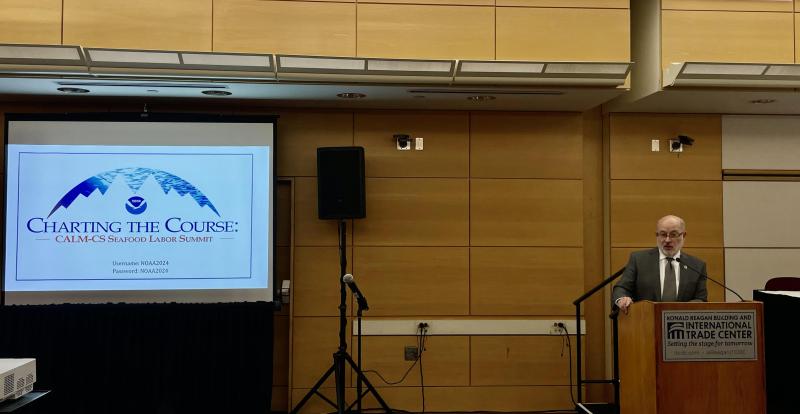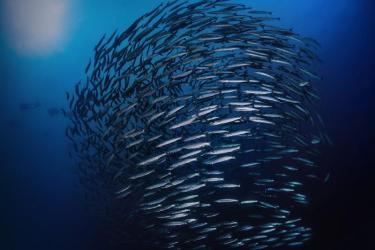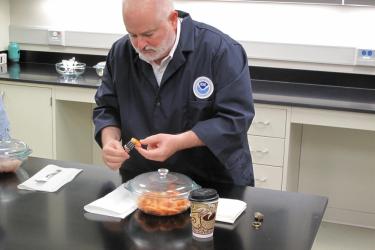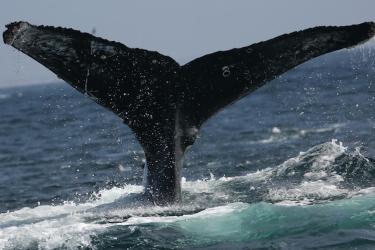On February 28, NOAA Fisheries brought together more than 100 officials representing government agencies, labor and environmental advocacy organizations, and the seafood industry. They reflected on progress and identified next steps in their efforts to address labor issues within the seafood supply chain. The Seafood Labor Summit was the final step in a 15-month initiative known as the Collaborative Accelerator for Lawful Maritime Conditions in Seafood, or CALM-CS.
NOAA developed the initiative to promote legal and safe working conditions throughout the fishing and seafood industry by combating forced labor and advocating for lawful and secure working conditions within the seafood sector. Its goals included identifying best practices to ensure that seafood entering the United States is not harvested using illegal or unsafe labor practices.
NOAA leadership emphasized the importance of addressing forced labor throughout the summit. “The Biden Administration is committed to making good on the shared vision of fair, decent and legal working conditions for all, across the seafood supply chain,” said NOAA Administrator Dr. Rick Spinrad. “From developing a collective vision for how due diligence elements can be applied across the seafood industry, to exploring practical and effective tools to implement ethical recruitment practices, the CALM-CS initiative has delivered tangible progress.”
Presenters highlighted the devastation that illegal and inhumane working conditions in the seafood sector, such as forced labor, causes for the victims and their families. They discussed how forced labor can contribute to destabilization of maritime security and supply chains, as well as the degradation of fisheries and broader marine ecosystems. Left unchecked, labor abuses undermine U.S. economic competitiveness, national security, and the sustainability of marine ecosystems.
“CALM-CS underscores our shared commitment to fair, decent, and legal working conditions across the seafood supply chain, and our commitment to work to ensure that no seafood products made with forced labor enter into our markets,” said Janet Coit, NOAA Fisheries’ Assistant Administrator. “This summit reminds us why we are making this a priority issue and for and with whom we are advocating. CALM-CS was the foundation we needed to inform our discussions here today, and our efforts tomorrow and beyond.”
Throughout the day, speakers focused on the tangible results the CALM-CS partnership achieved in several key areas, including:
- Identifying and promoting the implementation of key elements of effective human rights due diligence in the seafood industry
- Analyzing data needs to better understand abusive human rights and labor practices in the seafood industry and identifying data gaps to be addressed
- Providing practical and successful tools to implement ethical recruitment, as well as raised awareness of of exploitative labor recruitment and practices
- Launching awareness campaign for fishers and other seafarers in U.S. waters on risks of human trafficking and providing access to resources for victims
- Promoting the understanding of the importance of WiFi and other communication on board vessels
NOAA Fisheries' leadership of the CALM-CS initiative is part of a comprehensive U.S. government effort to combat illegal labor practices, including forced labor in fisheries. This work is achieved in concert with the Departments of Homeland Security, Justice, Labor, and State. The United States is actively engaged with international organizations to promote effective standards, such as transparent recruiting practices, fair wages, and occupational safety and health protection.
“NOAA Fisheries works on several fronts to promote safe and legal working conditions across the seafood chain,” said Alexa Cole, Director of NOAA Fisheries Office of International Affairs, Trade, and Commerce and the chair of CALM-CS. “By bringing together leaders from across government, academia, labor organizations, environmental groups, and stakeholders in the seafood industry, we are able to best tackle this ever-growing global issue.”
Summit Panels
Summit panels included:
Ethical Recruitment and the Importance of Incorporating Workers’ Voice
Panelists discussed the role of ethical recruitment in reducing the risks of unfair or exploitative labor practices, including forced labor, as well as tools and resources to ensure that workers are treated in a fair, legal, and humane manner.
Harnessing Data and Information to Identify Labor Risks
Panelists explored how information can be used by stakeholders to identify seafood products at risk of being produced with illegal labor practices, and to identify data gaps and strategies to enhance collaborations to improve data collection and availability.
Supply Chain Accountability
Panelists discussed the importance of understanding and mapping supply chains for both seafood products and workers as a means to identify and prevent illegal and inhumane working conditions in the seafood sector.
Impactful Human Rights Due Diligence: Lessons Learned to Inform the Seafood Sector
Panelists discussed lessons learned from other industries to ensure decent working conditions across their supply chains.
CALM-CS Ends, but Efforts Will Continue
“Building on this foundation, CALM-CS members achieved something significant in only 15 months—from developing a collective vision for how due diligence elements can be applied across the seafood industry, to exploring practical and effective tools to implement ethical recruitment practices, the CALM-CS initiative has delivered tangible progress,” said Dr. Spinrad. “And although CALM-CS itself may be ending, our collective and individual efforts will continue, and I hope we can build upon the community we have created and strengthen our collaborative efforts.”



